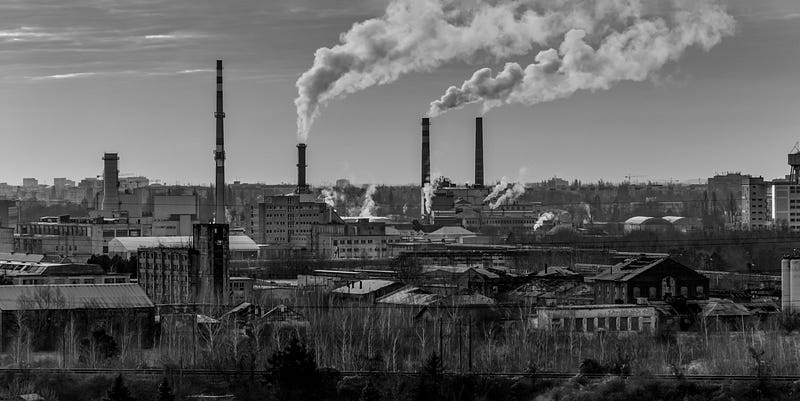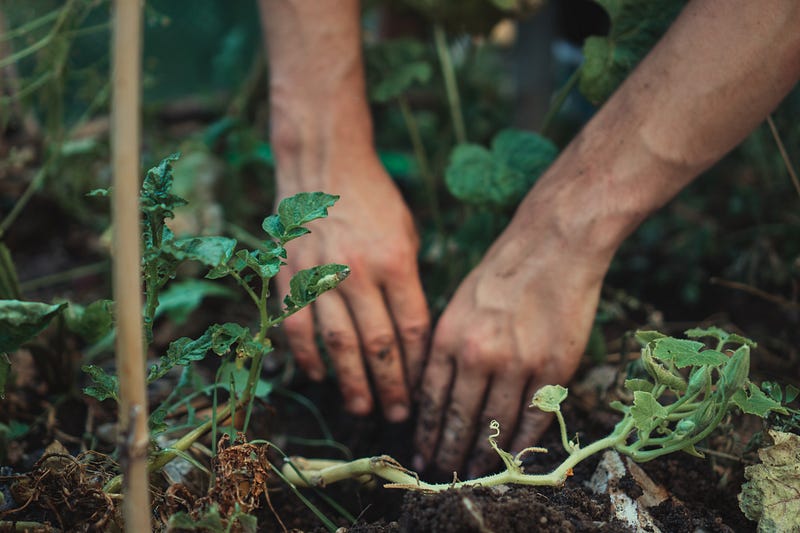We are part of something eternal we ignore at our peril

“The source of suffering is separation from God.” Soren Kierkegaard
Substitute “Nature” for “God” and Kierkegaard’s diagnosis reads true today. Nature is our source of life, the one who does everything religious people think of as God’s domain. We and our bodies are intimate parts of Nature. Indigenous people call It the great spirit. Yet we pretend It has no importance.
No wonder individuals and societies tend to craziness. Urban people especially live in artificial worlds. We walk on concrete if we walk at all. We look at videos of animals and plants instead of their living selves. We see buildings instead of hills, streets instead of rivers.
Sitting in front of screens, we come to believe that money is real and the most important thing in our lives. We think the dramas playing out on media are what life is about, not Nature’s tireless provision for our needs and Its own need to be nurtured in return. Our minds stay absorbed in past regrets and future worries or in nonexistent fictional worlds, while here-and-now physical reality goes unnoticed.
This disconnect from Nature may be the #1 cause of our problems: from war to pollution to depression and anxiety, to climate collapse, mental illness, and violence of all kinds. It is so hard to remain sane and happy, so easy to fall into destructive ways when we are alienated from the source. What difference does anything we do make, when what we know as the world is a made-for-TV movie, which we have no say in scripting and in which the characters and plots make little sense?
Our rulers, the people who dump coal mine wastes in rivers and build thousands of bombs and prison cells, or who turn the world’s jungles into cheap furniture, do not live in the natural world. They live in the industrial world that treats Nature as a source of profit, not as their home. They have no home, and they have no meaning to their lives.
We shouldn’t follow them. Aspiring to be like the the Musks or the Kardashians is making us sick. To live in peace, everyone needs to feel part of something larger than themselves, something that will last beyond them. Nature fills that need if we let it.
Some ways to reconnect with Nature
● Farming and gardening — Growing food is not only vital for life; it teaches us how life works and where food comes from. You have to get your hands dirty, use your muscles, breathe in the plants’ expired air, observe how Sun and Earth create life. I think it would be hard to spend the day growing food and then go to work and order a missile strike on some other country.

Not everyone can farm, but almost anyone can garden. If you have no land or community space, you can grow food in pots. The kind of gardening/farming that regenerates soil fulfills our responsibilities to the cycle of life, taking from Nature and giving back at the same time. It’s very different from buying food in Styrofoam packages at a supermarket.
● Trees — Poet Rabindranath Tagore wrote, “The one who plants trees, knowing that he will never sit in their shade, has at least started to understand the meaning of life.” Forests give life to millions of creatures, create oxygen and absorb carbon, making livable environments for everyone. They bring rain and raise the water table so other plants can grow.
Trees let us know life goes on. Walking among them or sitting in their shade brings a sense of peace. The Buddha found the meaning of life while meditating under a tree.
Forests are terribly endangered now, being cut for timber and burned for crops or grazing. Planting trees and caring for them bring us connection and sanity, especially if we do it right.
● Along with forests and farms, we need healthy oceans, and some people find the sea their greatest sources of peace. The ocean is the original source of life, and poets for centuries have described its healing powers. Now it needs our help, as you can observe here and here.
Organizations like SeaTrees plant mangrove trees and kelp forests, restore coral reefs and support ocean cleanups. If I were younger and more able, I would definitely like to participate in projects like theirs.
In a sustainable society, everyone would have to do or support this kind of work. We have to give, not only take. And if people reconnect with Nature and feel ourselves part of life, there will not be so much damage to repair.
Not all paths to Nature involve so much work. People can go camping, getting out to actual parks and wild lands, making sure to leave them better than they found them. For city people, camping helps us remember that the real world is out there. But there are ways to reconnect within cities also.
Animals R Us
● Animals and plants– Our living cousins are sources of delight and sanity. If you get outside, do you notice the birds and bugs or the occasional non-human mammal? You definitely won’t if you’re in a car, and even on foot you have to pay attention, but there is a world of creatures out there trying to survive.
If you’re not able to see wild living animals, pets and plants are also cousins (sharing a common ancestor if we go back far enough.) If we have animals in our lives, we can be reassured and centered by touching them and visiting with them. Wild or domestic plants are also relatives, breathing out oxygen so we can breathe with them.
● Children give us a lifelong course in how Nature works. We see them grow, mature, learn, delight, get hurt, recover. Younger ones, less corrupted by media and school, can make us feel young, too.

● And then there are our own bodies — Paying attention to the physical things we do, like our movement and our body functions is a way of noticing nature. Urinating and defecating mean returning our food to Nature. Eating and drinking might be our closest interactions with the physical world.
Do you pay attention when you’re eating? Do you even taste anything after the first bite? Most people don’t, and many in mid-meal couldn’t tell you if they are still hungry or filled up. Tasting, appreciating, giving thanks, remaining aware of how our guts are responding make eating a form an enjoyable and powerful form of meditation on life.
In my opinion, that is the deeper meaning of the Christian Eucharist (eating the “Body of Christ” as a wafer). When we eat, something else in Nature has given up its life or part of itself to keep us going. When we drink, the cycle of life in the form of water comes through us, connecting us to the world.
● Sex gives us a unique opportunity to connect with our bodies and with other people. But usually we don’t. People will be thinking about other things, worrying about their performance, or judging their partners instead of fully concentrating on their sensations and on the miracle of life that sexual energy represents.
● Meditate — observe the whole natural world within you. Sense your breathing and circulation. All the spiritual teachers I’ve heard have said that we should go inside ourselves to experience true freedom.
● Gratitude — moving around, give thanks for the trees, plants, birds and all that makes life possible and beautiful. Be specific about their unique gifts. Robin Wall Kimmerer writes up these thanks in a chapter called Allegiance to Gratitude in her book Braiding Sweetgrass.
How Nature connections could heal our sick society
As I and many others have written, our leaders are crazy.. They really believe wealth and power are the goals of life. They can’t admit mistakes or change course. They’re in process of provoking a nuclear war.
Meanwhile, the madness of their disconnection has spread to most of the population, at least in the U.S. As I write this, temperatures in Las Vegas, Nevada, are going over 110 degrees F most days. The level of Lake Mead, the source of water for over two million people in the area, is dropping precipitously.
Yet, people are still moving there in droves. New subdivisions get built every week, spreading farther out into the desert. People come because there are (relatively) good-paying jobs and affordable housing. Those financial considerations somehow outweigh the obvious fact that it’s 110 degrees and there will soon be no water!
How disconnected is that? Maybe not as bad as the coal companies, banks, and governments’ mining coal on the Hopi and Navajo reservations south of Vegas. The mine companies sell coal to power the Vegas Strip and other cities, while the Indians’ land is degraded and their water polluted. The bankers seem to think, ‘The land is just sitting there. It should be making money.’ They don’t get that Nature has value beyond what ‘natural resources’ can bring on the market. It brings life if we allow it to.
How will this end? When one generation of Nature-denying leaders ages out, another equally bad replaces them, and not just in the USA. Russia and China, India and Brazil’s leaders appear at least as divorced from Nature as ours. It might be too late for them. It might require a violent revolution to create a better system, and I don’t know how that could happen.
But there could be a way for future generations What if every child had to do something in Nature a few times a week, meditate every day,, and take a full year every decade to do stuff like land restoration? Would they still spend the rest of their lives in pursuit of profit or power? Would they still feel hurt, isolated, and alienated from the world? I don’t think so; I think Nature would heal them.
Note that indigenous people live in Nature every day. They know they’re part of Nature (or of God if you prefer) and have practices, prayers and rituals to help them remember. Maybe that’s how they stay strong despite their ongoing oppression. We should learn from them and follow them.
— -
Thanks for reading! Please comment, share, or steal. Follow me on Twitter, on Facebook or on Medium.com. Hire me for freelancing, editing, or tutoring on Linked In
